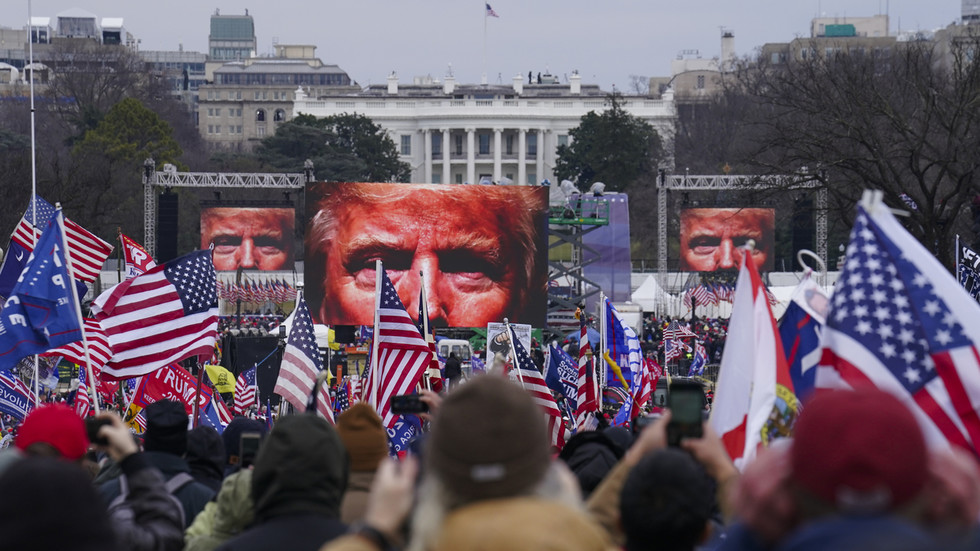
Internal communications reveal how executives were bending the rules to justify banning Trump permanently

FILE PHOTO © AP / John Minchillo
The overwhelmingly left-leaning executives at Twitter were virtually unanimous in their belief that then-President Donald Trump must be banned from the platform permanently – their only concern was finding a pretext, the latest installment of the ‘Twitter Files’ has revealed.
Bestselling American author Michael Shellenberger continued sharing the saga in a lengthy thread on Saturday night, shedding light on behind-the-scenes discussions in the aftermath of Trump’s temporary suspension on January 6, 2021.
According to one internal message, the former head of Trust and Safety, Yoel Roth, tried to reassure concerned colleagues that other senior executives “aren’t happy with where we are” and were actively taking steps to pressure then-CEO Jack Dorsey. Despite emphasizing the right of any user to return from a temporary suspension, Dorsey eventually approved a policy that would legitimize a permanent ban of Trump for “any” repeat violation.
“In this specific case, we’re changing our public interest approach for his account,” Roth explained to a sales executive, who had asked if this meant the company was dropping its official policy that allows content from elected officials, even if it violates Twitter’s rules, when it “directly contributes to understanding or discussion of a matter of public concern.”
What happens next is essential to understanding how Twitter justified banning Trump.Sales exec: "are we dropping the public interest [policy] now…"Roth, six hours later: "In this specific case, we're changing our public interest approach for his account…" pic.twitter.com/XRUFil2npI
— Michael Shellenberger (@ShellenbergerMD) December 11, 2022
In another letter, which Shellenberger described as “a kind of test case for the rationale for banning Trump,” Roth expressed irritation that Twitter could not ban US Representative Matt Gaetz because his alleged violation “doesn’t quite fit anywhere (duh)” and speculated about a “removal as a conspiracy that incites violence.”
Digging through the trove of communications, the journalists found just one unnamed junior staff member who, on January 7, attempted to raise concerns that such an openly arbitrary decision by a global online platform that can “gatekeep speech for the entire world” could be a “slippery slope.”

By that time, Facebook had already banned Trump, and with pressure growing on Twitter on January 8, the company proceeded to permanently ban the sitting head of state, citing the “risk of further incitement of violence” due to how his tweets were being “received and interpreted.”
Journalists Matt Taibbi and Bari Weiss began publishing the ‘Twitter Files’ on a rolling basis in collaboration with other reporters last week, having received direct authorization from the platform’s new owner, Elon Musk.
The first batch of records focused on Twitter’s decision to ban a controversial New York Post story on the foreign business dealings of then-presidential candidate Joe Biden’s son Hunter.
‘Shadow banning’ featured prominently in the second installation, showing that Twitter engaged in the practice despite repeated denials. Friday’s trove largely centered on Twitter executives increasingly collaborating with US federal agencies to clamp down on what they saw as ‘disinformation’ during the 2020 election. Taibbi is set to publish yet another trove on Sunday containing “secret internal communications from the key date of January 8.”




